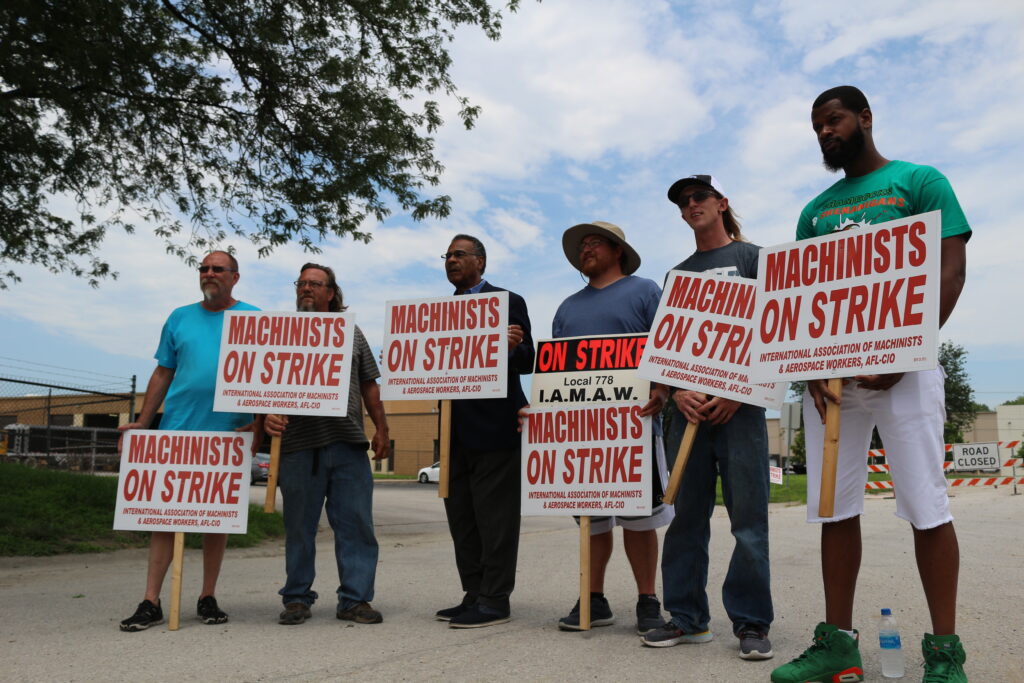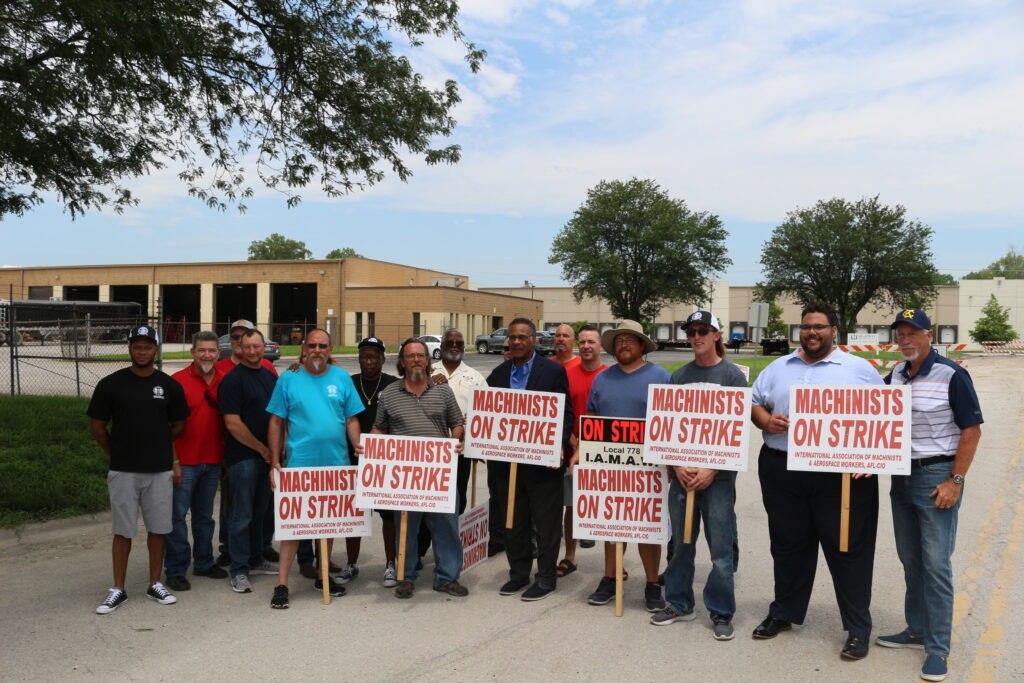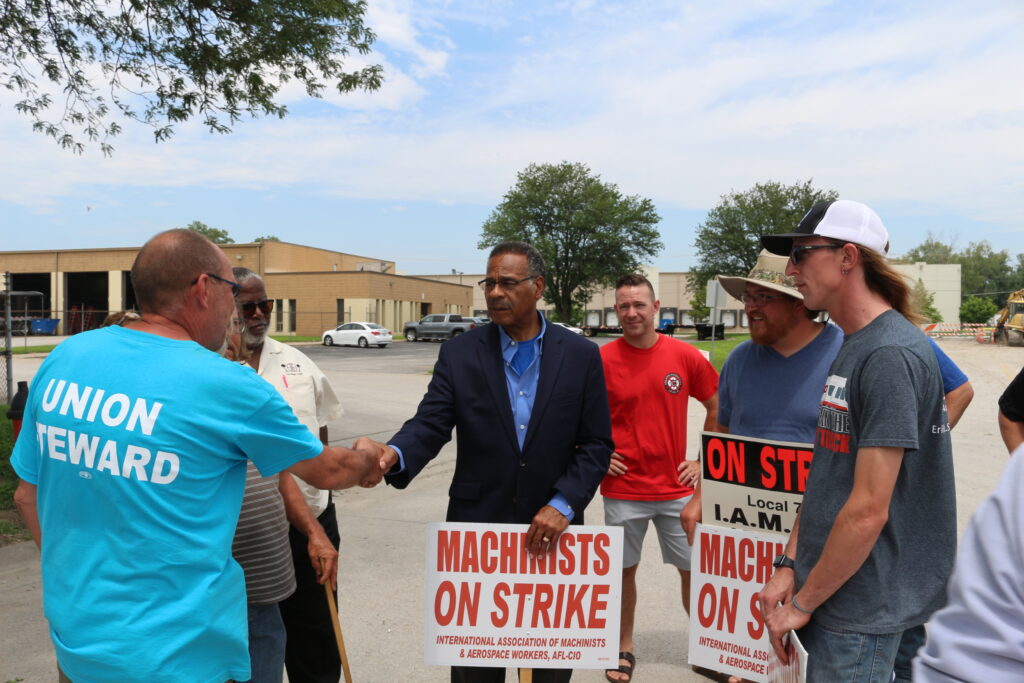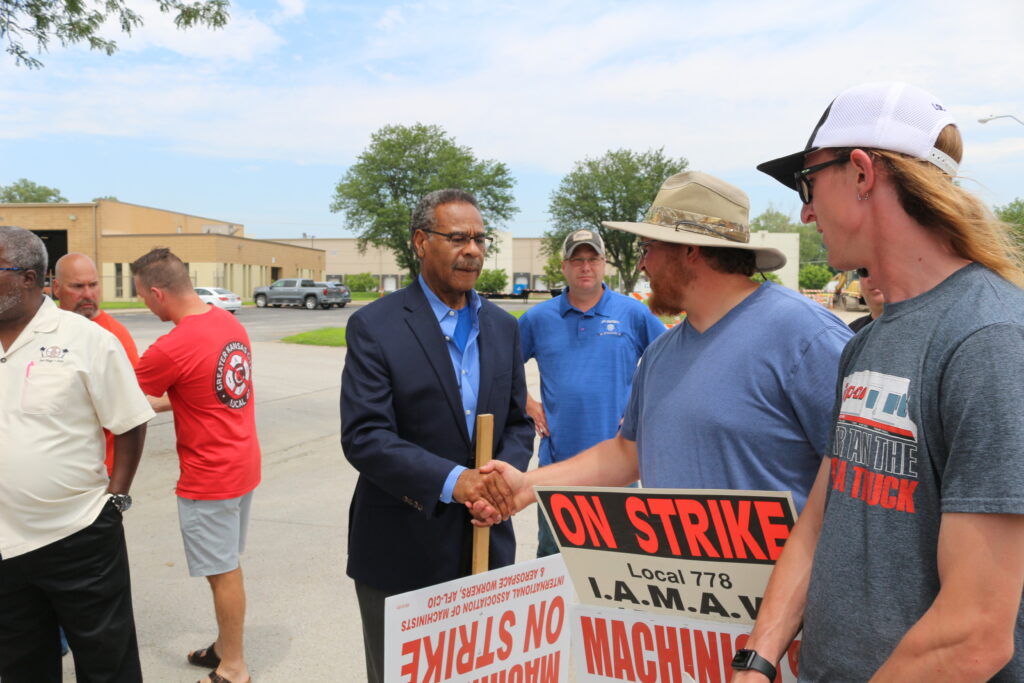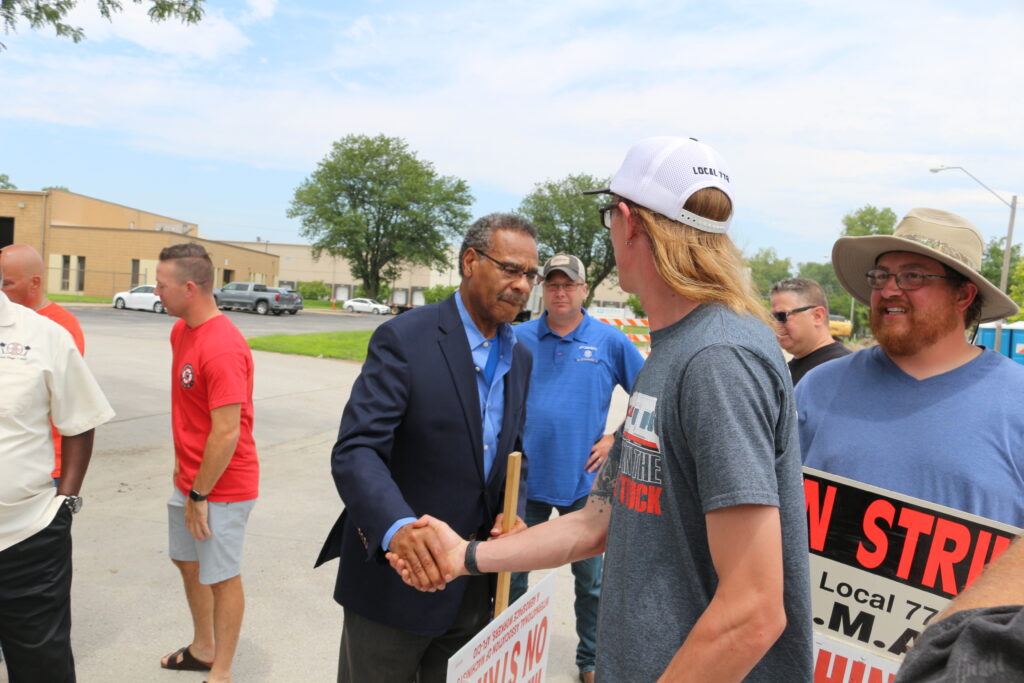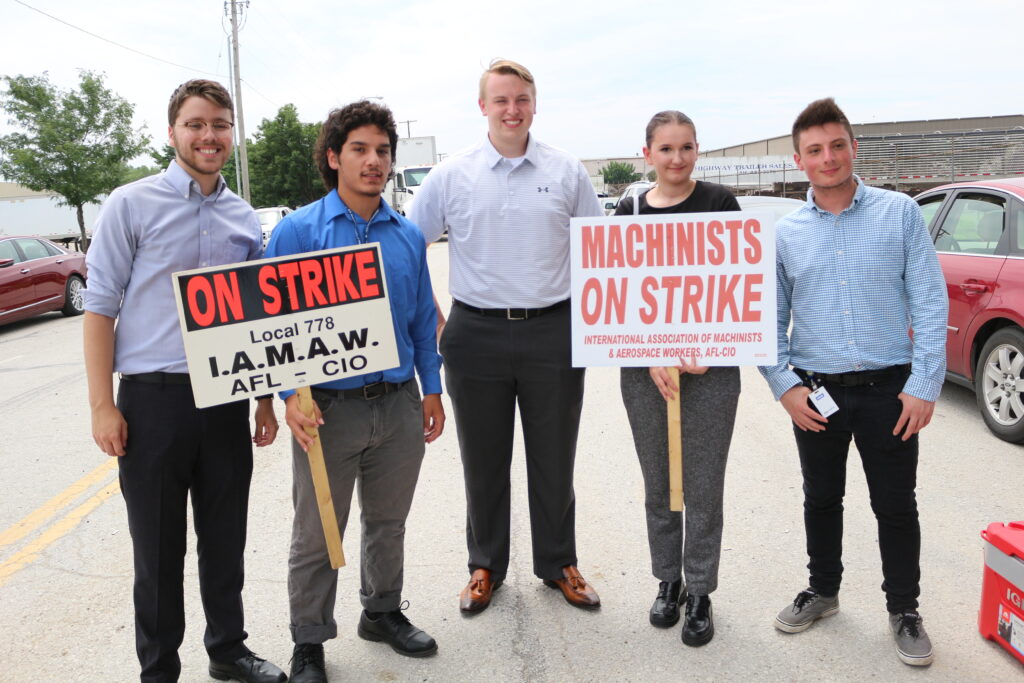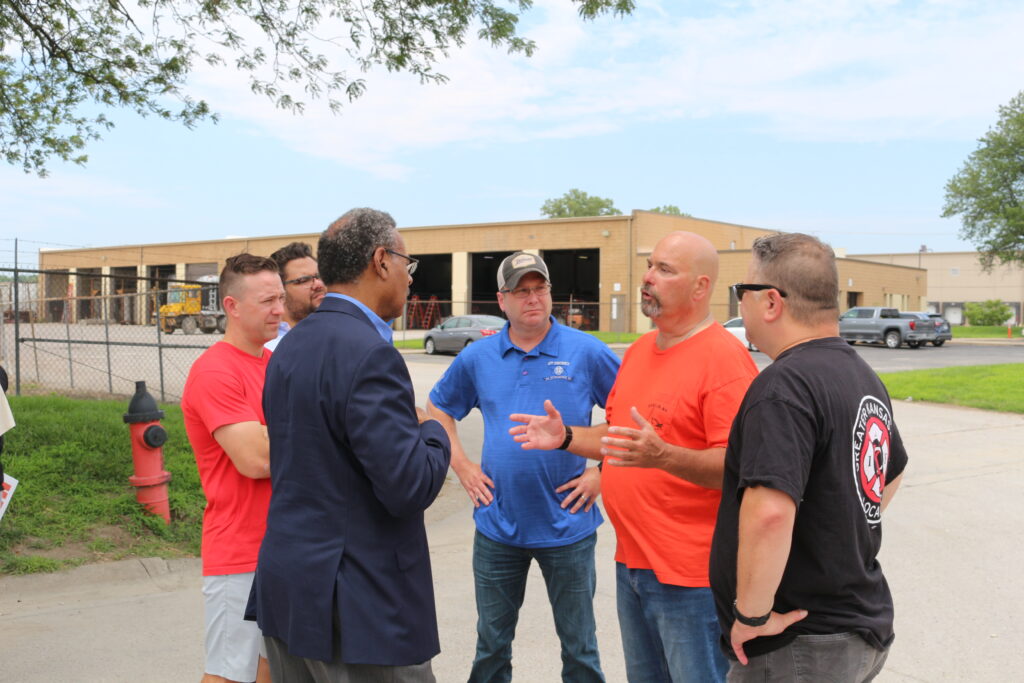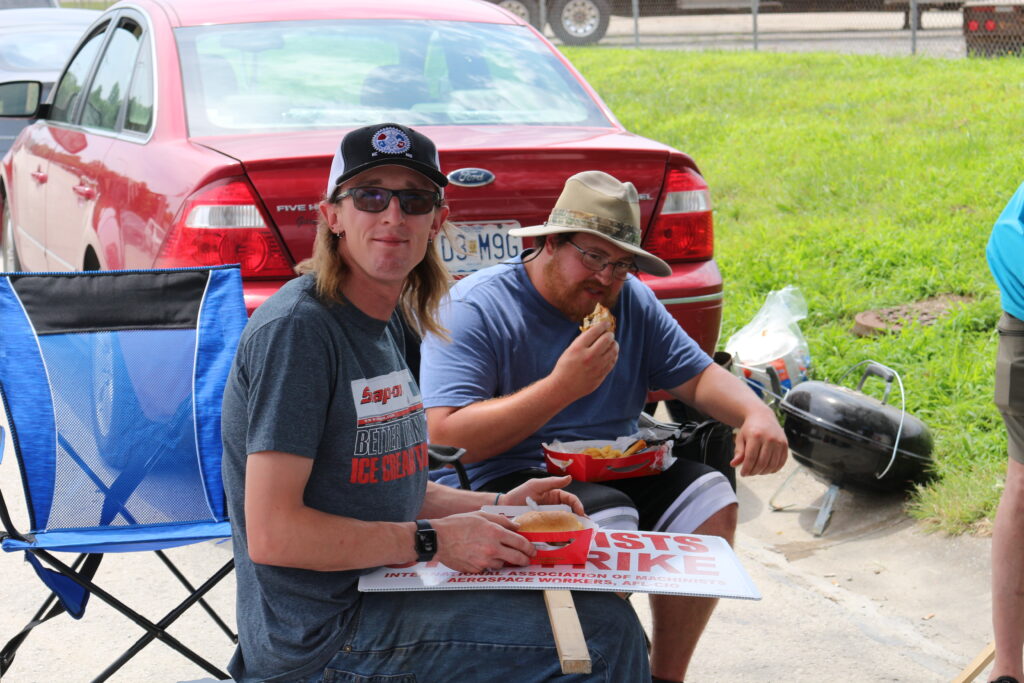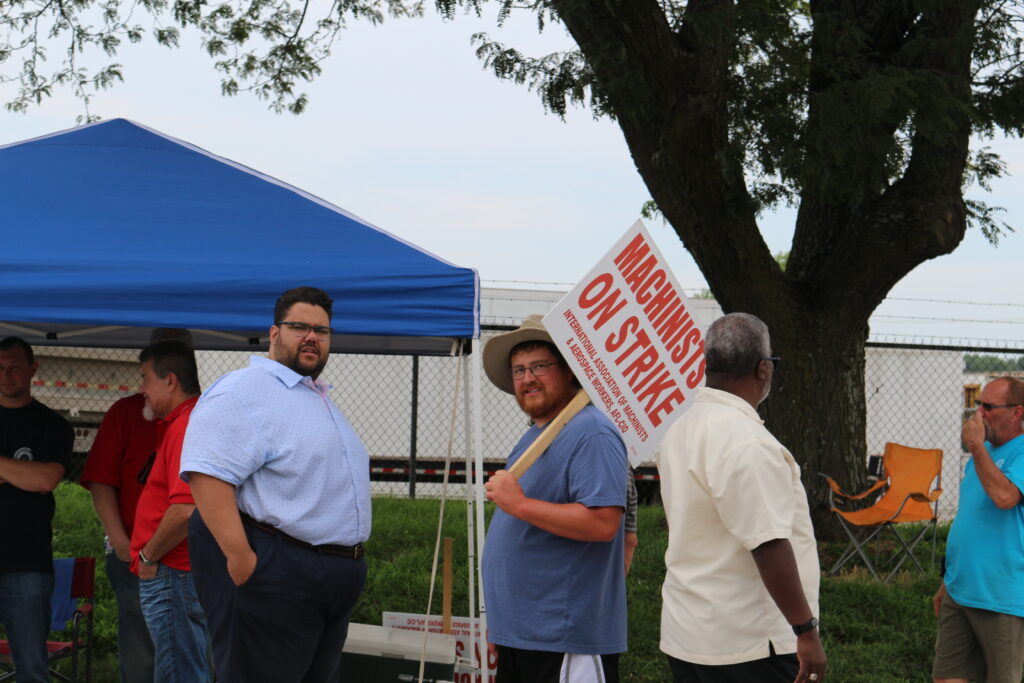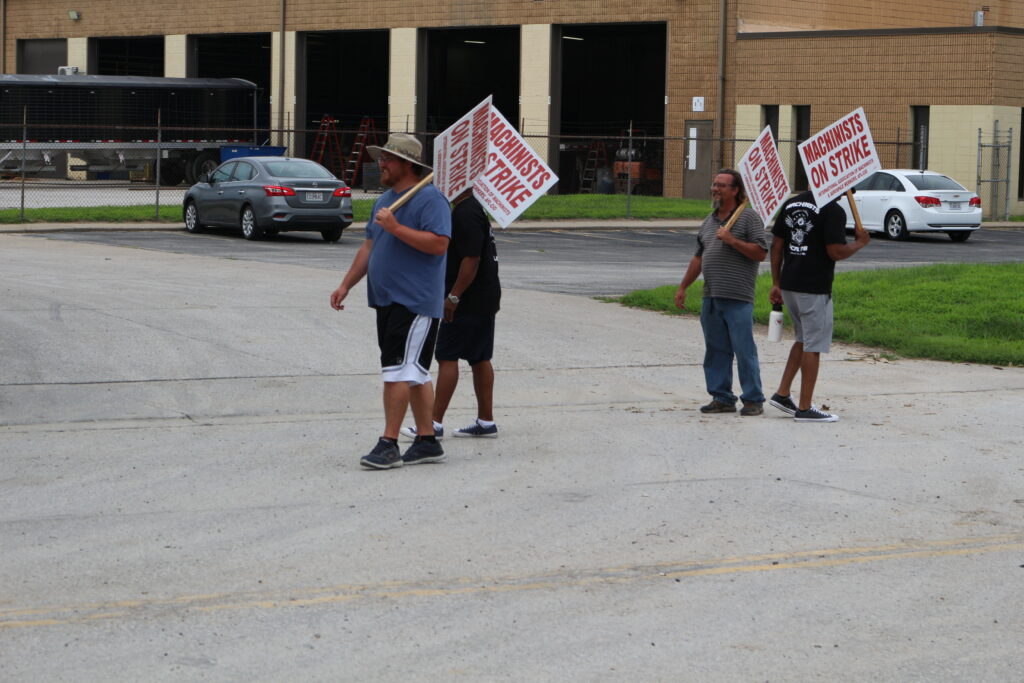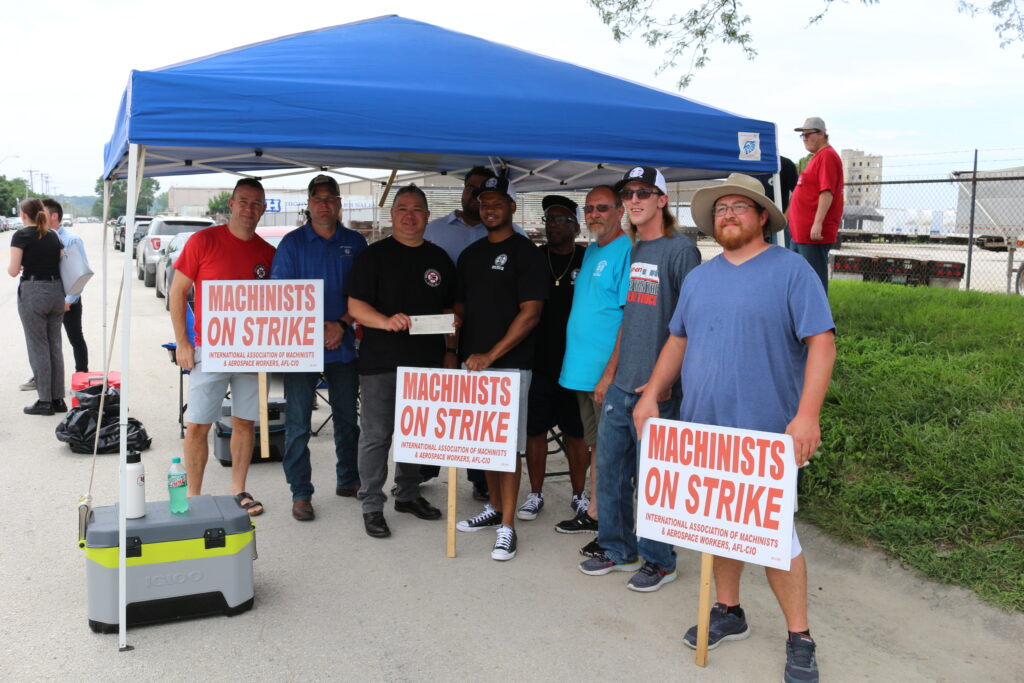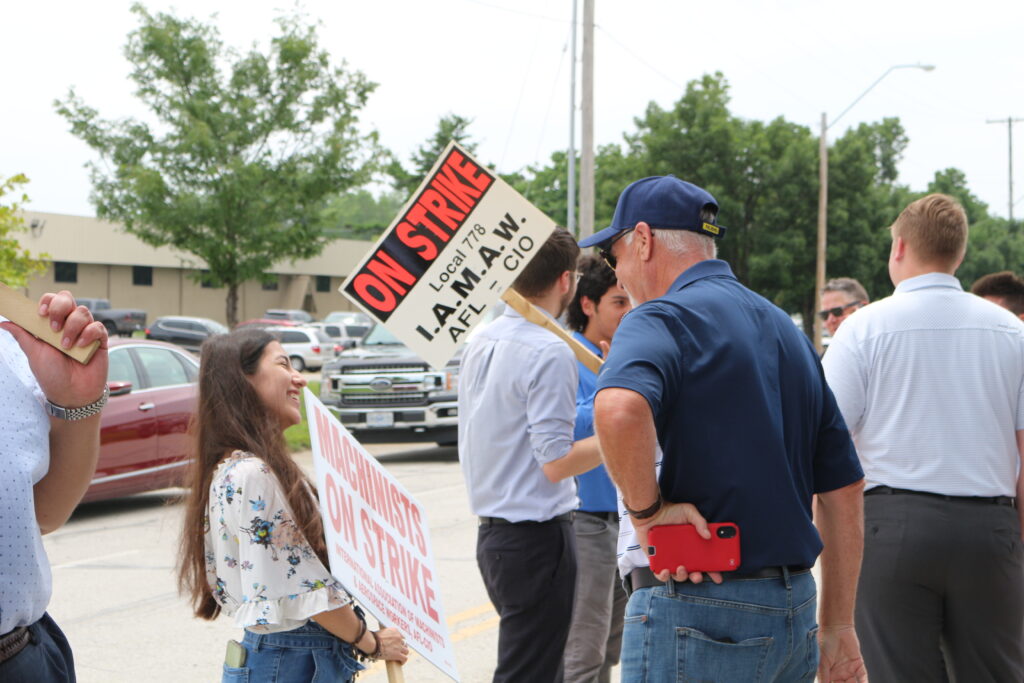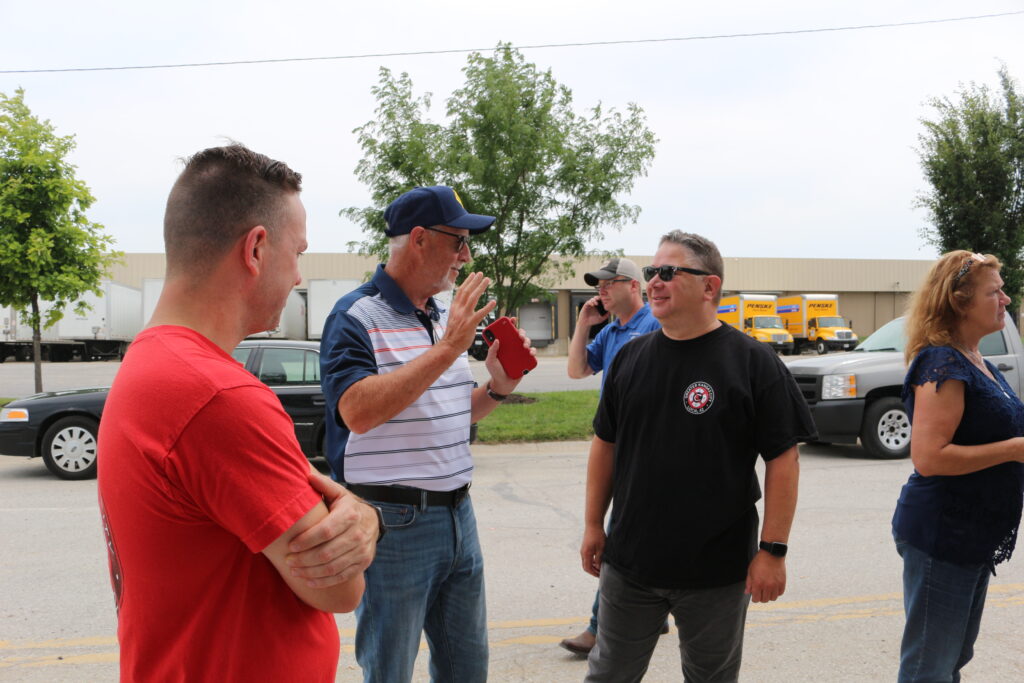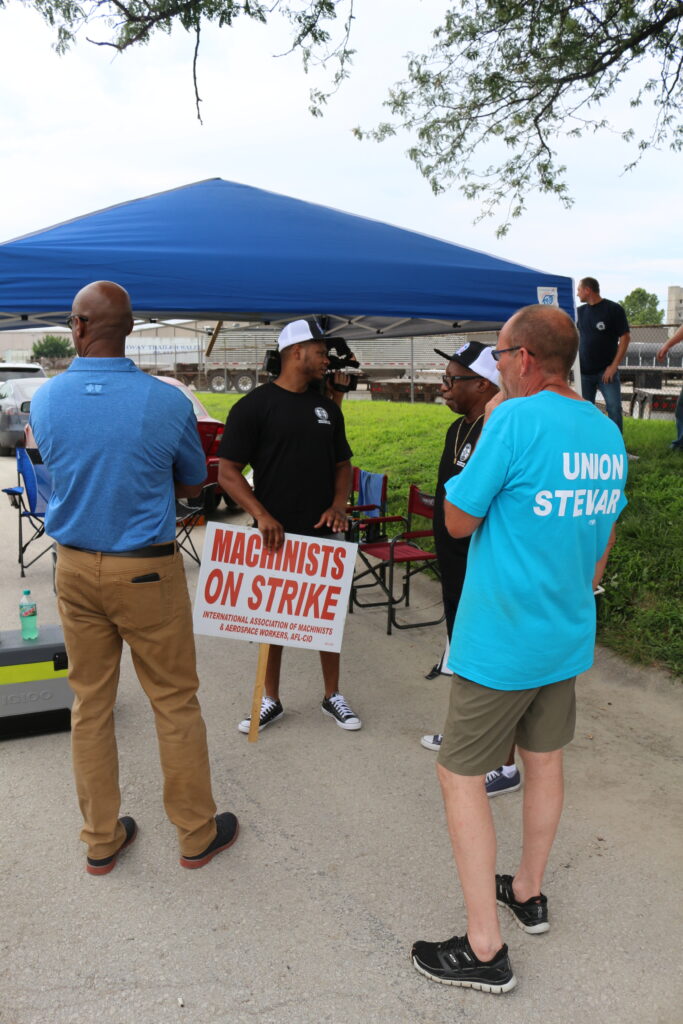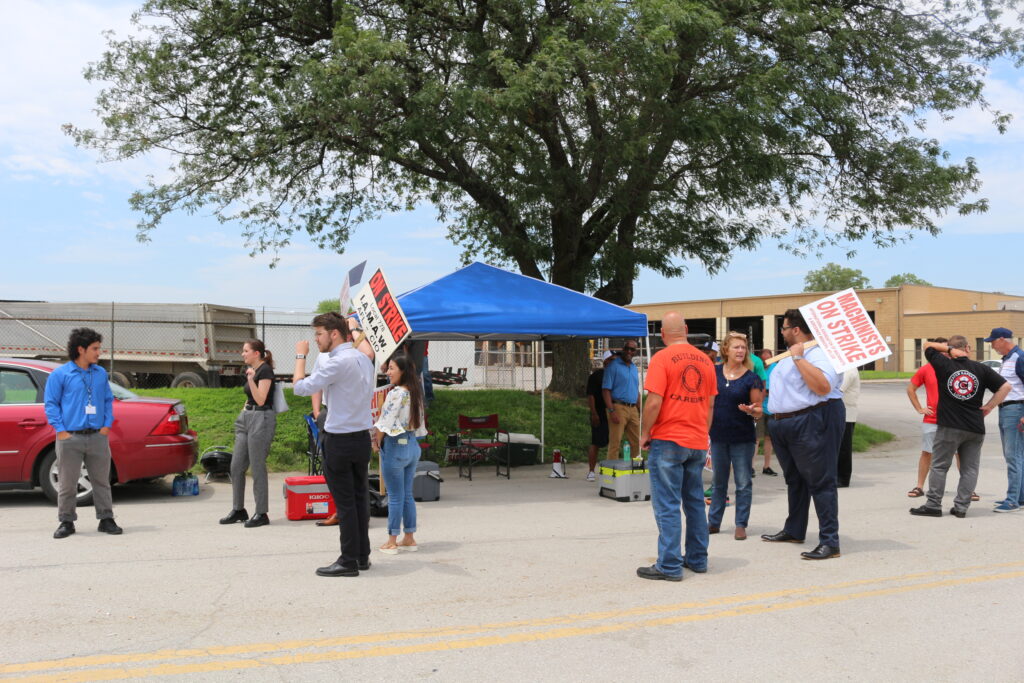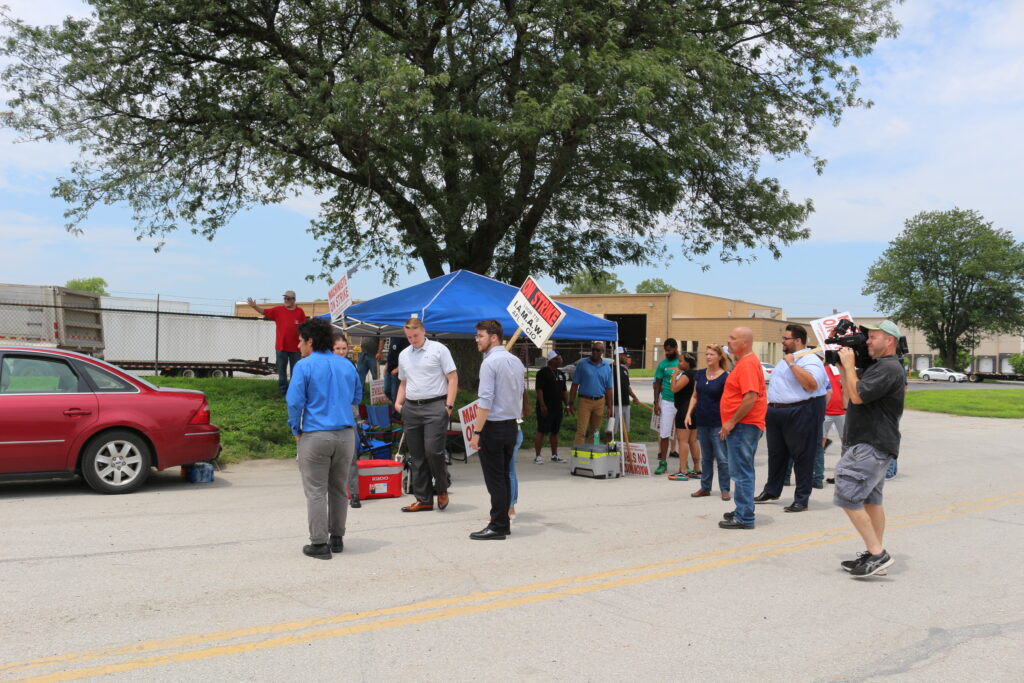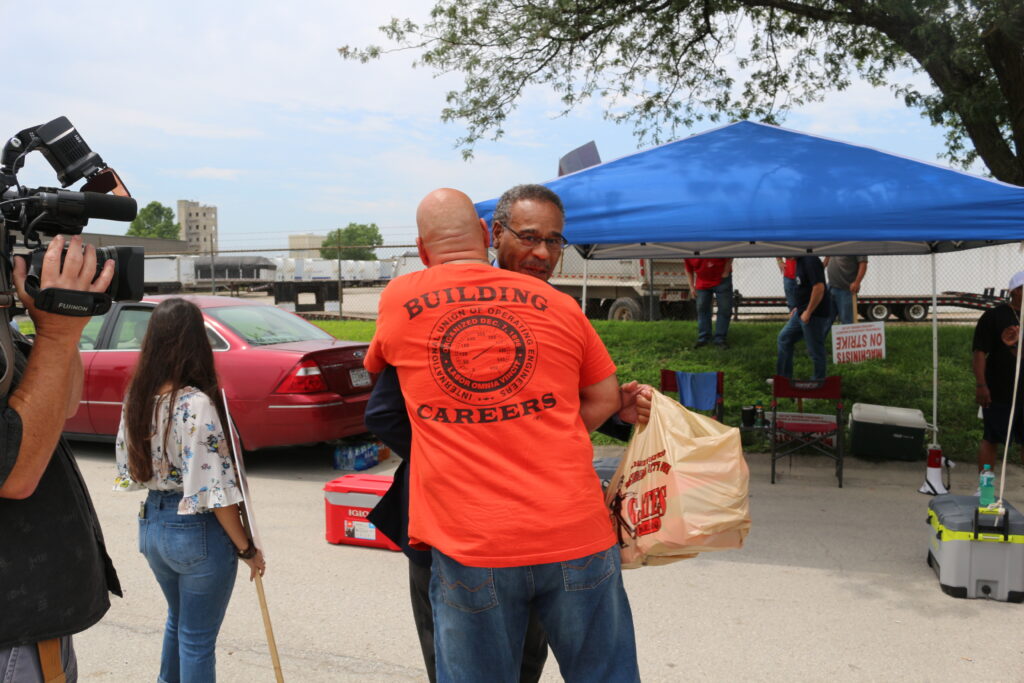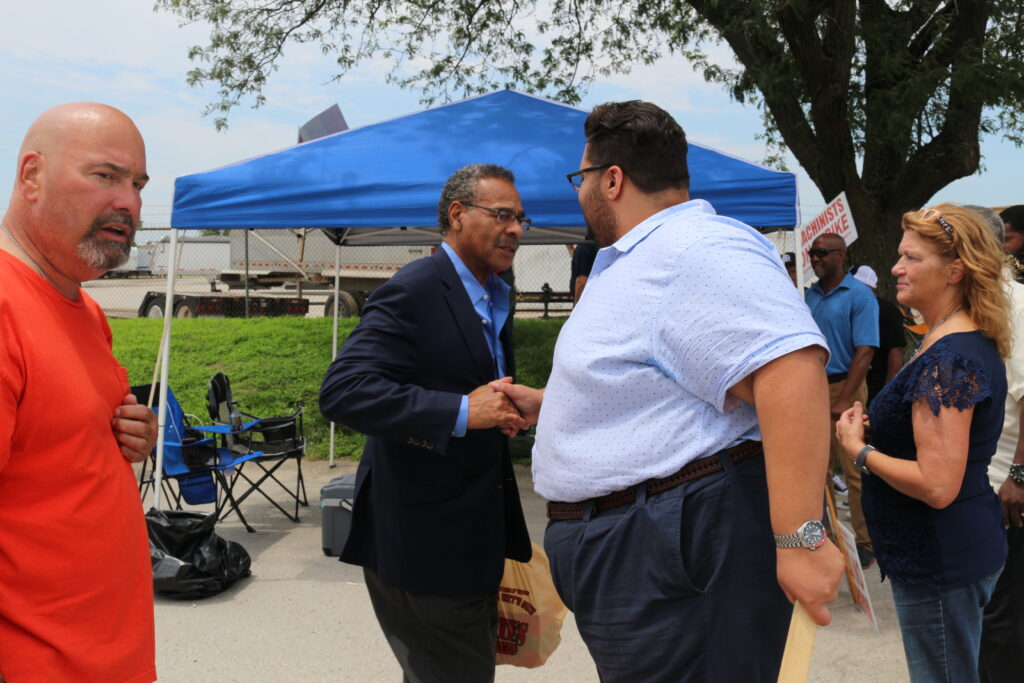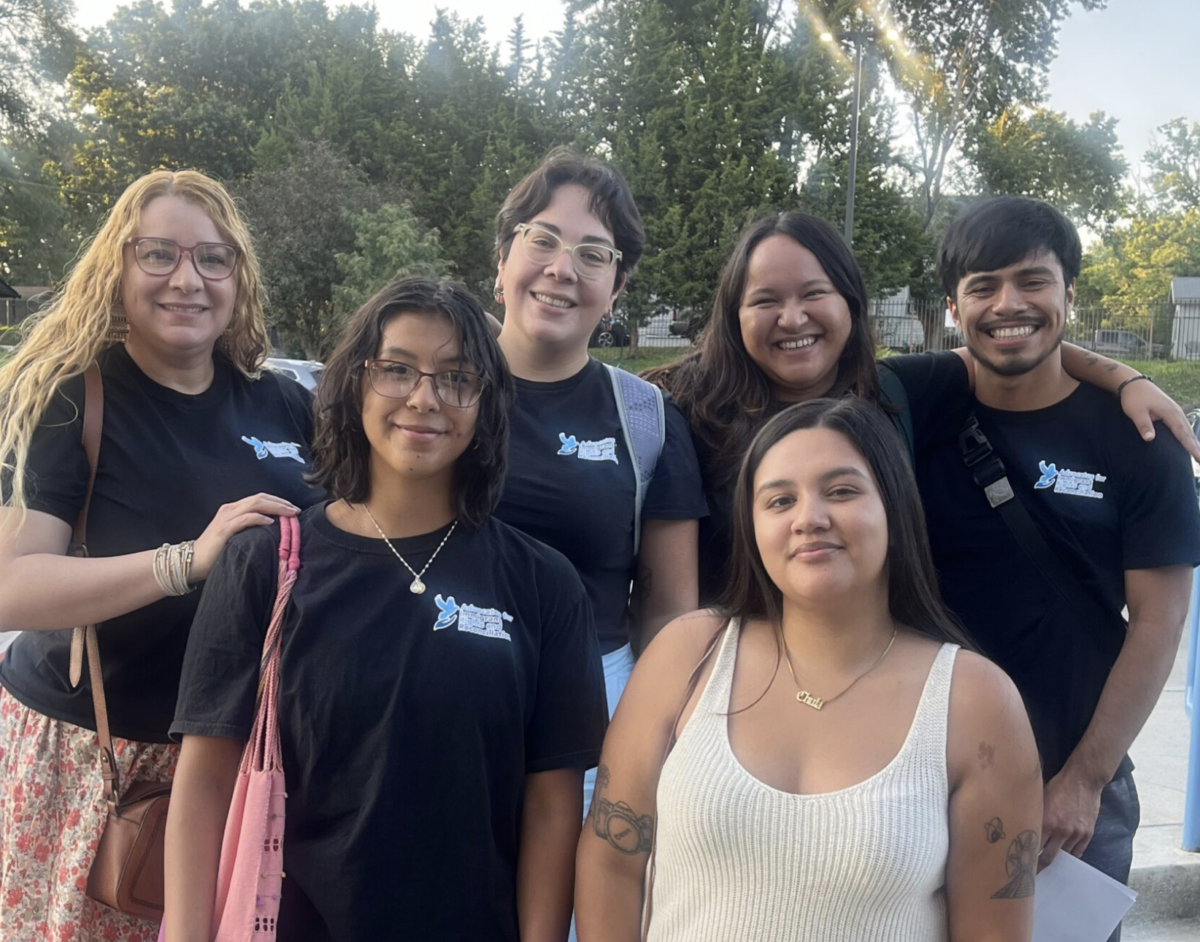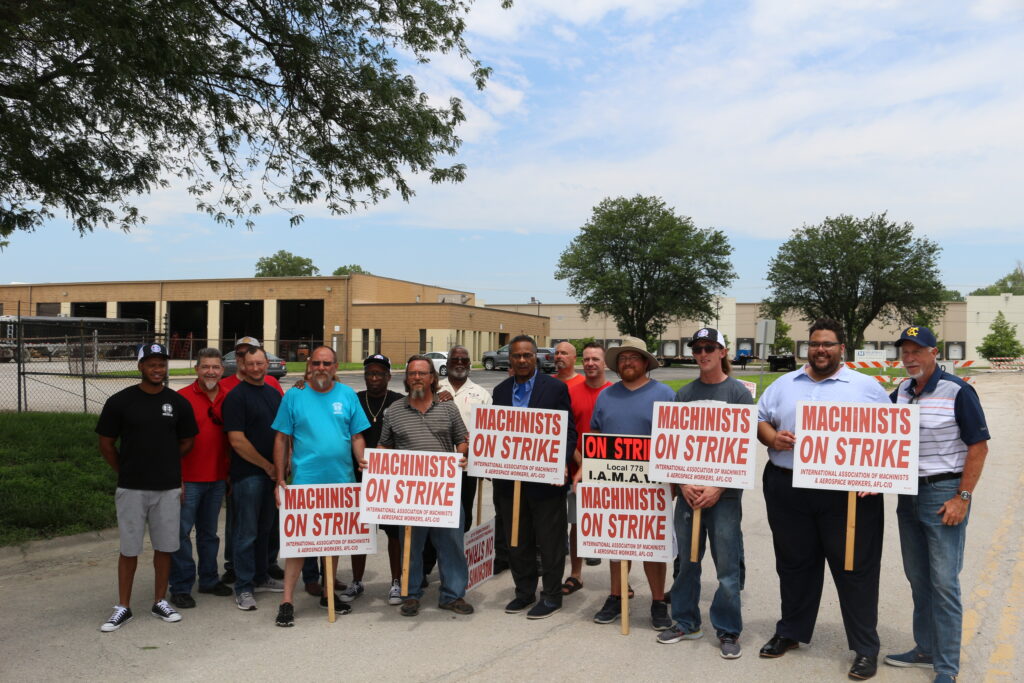
By Abby Hoover, Managing Editor
Unionized employees of a small family-owned company in the Northeast Industrial District went on strike after their employer failed to deliver negotiated raises, and they won.
Highway Trailer sells, services and provides parts for trailers that have been an essential piece of shipping supplies during the COVID-19 pandemic.
“We keep the semis on the road,” Highway Trailer mechanic William VanGerpen said. “We don’t work on the truck part of it, we just do trailer repairs. Anything from somebody comes in and they’ve got a light burnt out, we replace that, to rebuild major wrecks that take 120, 130 hours.”
They employ five union mechanics, and have a staff of 11, many of them family of the owner, Terry Leigh. Four employees have been out on strike since July 1. There’s one other union member still on the job, who was just hired in June, but his co-workers understand his situation.
“The three guys that are turning wrenches in there now, they’re normally in the office,” VanGerpen said during Friday’s strike.
VanGerpen has worked for the company for 23 years. For as long as he can remember, they’ve been on a three year contract. In 2019 and 2020, the owner told them he didn’t have the money to fulfill the negotiated raises.
“Us as mechanics trying to help him out, decided, ‘Alright, we’ll take a wage freeze,’ and he did it for two years, and during those negotiations he said, ‘I’ll make it up to you.’ So when contract time comes around, he still ain’t got no money.”
VanGerpen said Leigh wanted his employees to start paying part of their insurance, which has never happened there before.
“He was wanting to do away with having to take care of our union benefits for our pension, and he was offering a little bit of a raise, but by the time he took everything else away, we would be going backwards, pay wise,” VanGerpen said.
In the days leading up to the strike, people were calling the owner trying to get back into negotiations, but found little success.
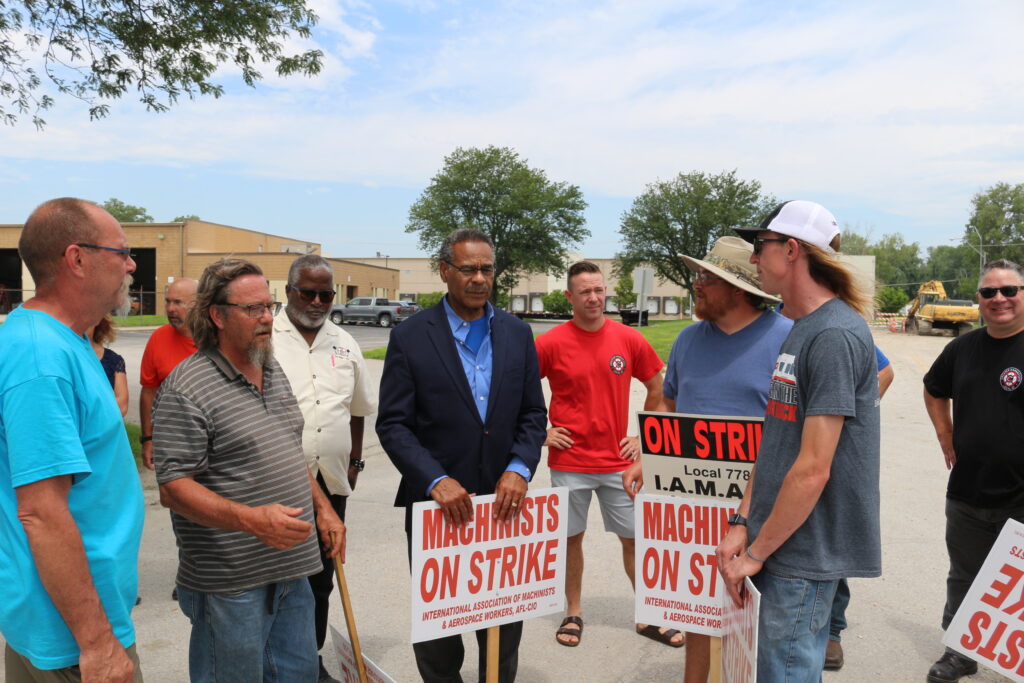
“We appreciate all the support we can get because these guys need to get back to work,” said Larry Young, a statewide representative from the International Association of Machinists and Aerospace Workers (IAM). Local Lodge 778 of IAM has around 3,500 members.
“We worked all the way through the coronavirus,” VanGerpen said. “These doors have never shut, and the mechanics have always had something to work on. There hasn’t been a lot of time when you’re standing around twiddling your thumbs or pushing a broom, you always got something to work on.”
They weren’t even asking for the two years’ worth of raises they had previously negotiated, but just a standard raise and no changes to benefits, Young said.
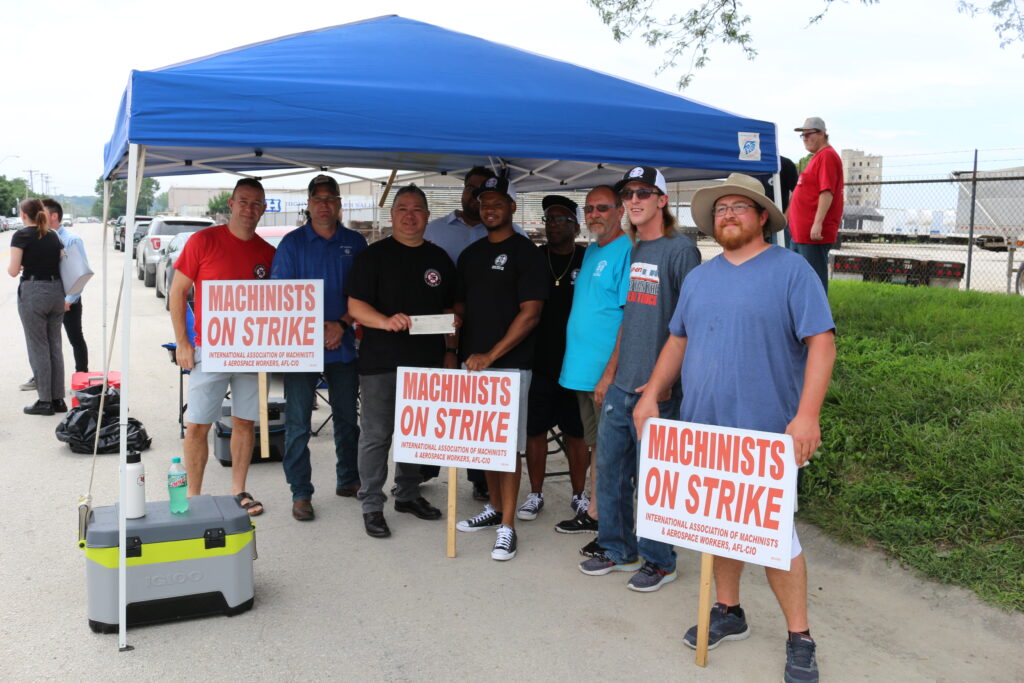
“I could understand if we’re asking for something outrageous, but we’re not,” striking machinist William VanGerpen said.
“These guys have forfeited their negotiated increases for the last two years to help him out because he said he was broke, despite before COVID and right while COVID was going on these guys were willing to help him out,” – said. “He was telling these guys, ‘If you help me out now, then I’ll make sure to take care of you later,’ and later is now.”
“We just came here to support our brothers in the strike, these efforts, and hope they have a quick end to their dispute and get back to work,” Dupin said. “I think it’s disappointing. Any time you have these disputes and they end up stopping work, people are out of work, and the difficulties they have while they’re in these negotiations are always hard on especially employees, and it doesn’t help the economy or the business either.”
Missouri Rep. Ingrid Burnett (D-19) stopped by on Thursday to show her support, and U.S. Congressman Emanuel Cleaver II was present at the strike on Friday, handing out Kansas City’s famous barbecue and encouraging their efforts.
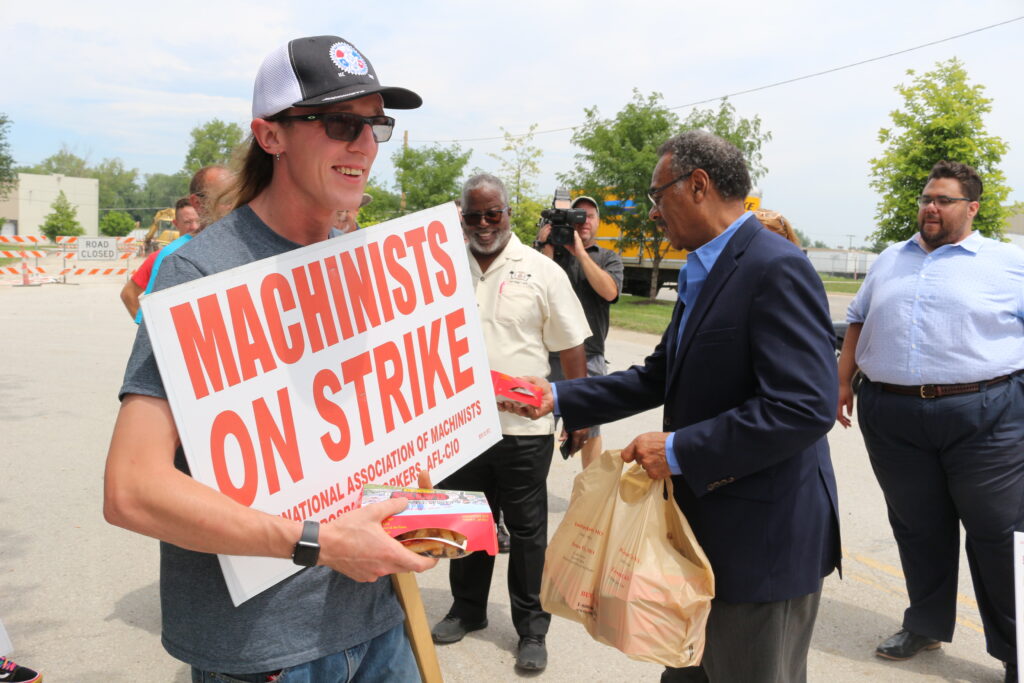
“At one point, they voluntarily gave up portions of their salary in order to be supportive of the company, so they’re not asking for anything that’s unreasonable,” Cleaver said. “All they want is the acknowledgement that they’ve been working with the ownership and the management, and there was never any reciprocal move by the company, so I just wanted to come out and help, bring them lunch as say, ‘Hey, I sympathize with what you guys are doing.’”
People who have worked through a very dangerous period of time, and have remained faithful even in the presence of personal danger, should get optimum consideration from the management, Cleaver said.
“I think at the bare minimum, we’ve got to make sure workers are paid fairly and they have decent working conditions,” Cleaver said.
He expects the company will have a hard time finding employees who will cross the picket line, especially with the workforce shortages Cleaver has seen personally across his district.
“In the midst of a workforce shortage, this would be the time, I would think, that you would really try and work with your employees,” Cleaver said. “I know places right now that are giving raises to everybody in that workforce to keep them from quitting because they’re going to have difficulty finding people to come in.”
With the Paycheck Protection Program, Cleaver said they were helping companies who were keeping their employees and not reducing their benefits or pay during the pandemic.
“When you find people who are not giving what the workers consider to be optimum consideration, we’ve got to remind them of the current state of affairs in this country,” Cleaver said. “We have more jobs right now than we have people, we have a workforce shortage in the United States, and here we have people wanting to work. They’d rather be at work today than standing out here.”
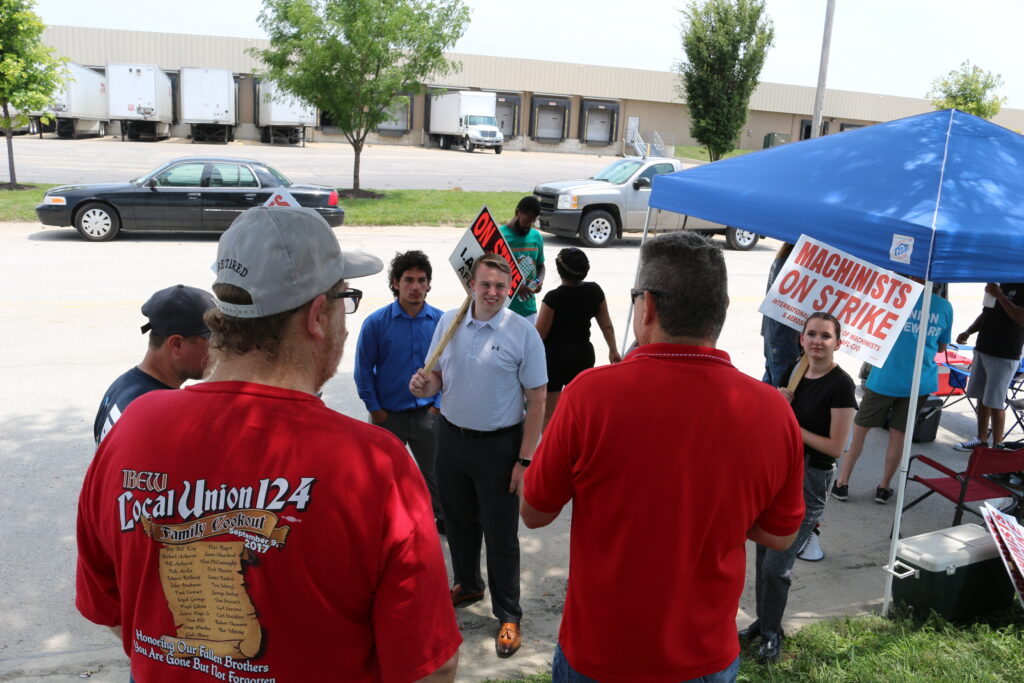
“We’re a brotherhood, it doesn’t matter if we’re in the same union or another union, we always stand together and stand up for the working man,” Chris Barnes said, who serves on IBEW’s local executive board. “I think it’s been a give and take relationship, and we’re always willing to give what we can to help out with the employer, and I think sometimes they worry more about the bottom line and not as much about their employees.”
When it comes to something the employer needs, there’s always money for it, but not to give to the workers, said James Wilkinson, a 36-year veteran of the electrical industry.
“The main reason I’m out here is because what’s happening to them could happen to us,” said Wilkinson, who also serves on Local 124’s executive board. “And I would love it if they came and supported us.”
Nick Townsend and his father James Townsend were both out on strike from Highway Trailer. Nick started working at Highway Trailer three years ago, and encouraged his father to apply. They work side by side every day. They were already family, but now have a union brotherhood backing them.
“It feels great, we love it,” Nick said. “We were kind of in despair there, just a few of us, but now we have support out here. It’s awesome, it feels good.”
Jackson County First District At-Large Legislator Jalen Anderson grew up in a union household, so he attended the strike on Friday to stand with the essential workers who felt they weren’t being treated fairly.
“It’s wrong because they’ve worked all throughout COVID, up until last week, but it’s amazing that some people are in that mindset to still try to make money off of people who have put in their time, risked their lives – I mean, we didn’t even have the vaccine last year – and kept working.”
With momentum building each day, the group was planning their largest day of the strike for Tuesday, July 13. The strike concluded just days before when Leigh came to the table ready to negotiate.
“I guarantee it opened his eyes, because he was thinking there were just four of us out here and we’ll give up and go home,” James said. “It’s getting bigger every day.”
The union employees maintained their health insurance, and got a 10% wage increase.


